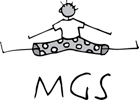
When a nerve gets compressed or damaged, we call this a pinched or trapped nerve. A pinched nerve occurs when a nerve root – the area where the nerve branches off from the spinal cord – becomes inflamed or injured, often affecting the shoulder joint.
Most common in people aged 50 to 54, people get pinched nerves in different areas of their spine, like their neck, lumbar or thoracic spine. Pinched nerves in your shoulder are generally related to age-related spinal degeneration and are typically triggered by sudden bending, twisting, lifting or conditions like a herniated disc.
If your pinched nerve is severe, it may take medical care to deal with it, especially if you experience severe pain.
Understanding Pinched Nerve in the Shoulder
A pinched nerve in the shoulder occurs when a nerve root in the cervical spine (neck) is compressed or irritated, leading to nerve damage, pain, numbness, and tingling in the shoulder, arm, and hand. Inflammation is a common response to nerve damage and contributes to the symptoms. This condition, known as cervical radiculopathy, can be caused by a herniated disk, bone spur or muscle strain. When these issues arise, they create inflammation and pressure on the affected nerve, resulting in uncomfortable symptoms such as burning pain. Understanding these underlying causes and mechanisms is crucial for effective treatment and prevention of pinched nerves.
Causes of Shoulder Pain
Shoulder pain can stem from various sources, with a pinched nerve in the cervical spine or shoulder joint being a common culprit. When a pinched nerve occurs, it means a nerve root has become inflamed or injured, leading to pain, numbness and tingling sensations in the shoulder and arm. This nerve compression can result from sudden movements, poor posture or age-related spinal degeneration.
However, a pinched nerve isn’t the only cause of shoulder pain. Muscle weakness can contribute to discomfort, as weakened muscles may not support the shoulder joint effectively, leading to strain and pain. Tendonitis, an inflammation of the tendons, can also cause significant shoulder pain, often due to repetitive motions or overuse. Arthritis, which involves inflammation of the joints, can lead to chronic pain and stiffness in the shoulder.
In some cases, shoulder pain can be referred from other areas of the body, such as the neck or upper back. This means that an issue in one part of the body can cause pain to be felt in the shoulder, even if the shoulder itself is not the primary source of the problem. Understanding these various causes can help in identifying the right treatment approach to relieve pain and improve shoulder function.
Risk Factors and Prevention
While a pinched nerve can happen to anyone, certain factors can make you more susceptible. Age is a significant factor; as we get older, our spine undergoes wear and tear, which can lead to conditions like cervical radiculopathy. Repetitive motions, such as those required in certain jobs or sports, can also increase the risk of nerve compression and lead to repetitive strain. Poor posture, obesity and underlying health conditions like arthritis or diabetes can further contribute to the likelihood of developing a pinched nerve.
To prevent a pinched nerve, it’s essential to maintain a healthy lifestyle. Regular exercise, particularly activities that strengthen the neck muscles and improve flexibility, can help keep your spine in good shape. Practising good posture, especially when sitting for long periods, can reduce the strain on your neck and shoulders. If your job involves repetitive motions, take frequent breaks to stretch and change positions. Maintaining a healthy weight can also alleviate pressure on your spine and reduce the risk of nerve compression.
By being mindful of these risk factors and taking proactive steps, you can significantly lower your chances of experiencing the discomfort and pain associated with a pinched nerve.
What are the symptoms of a pinched nerve and muscle weakness in my shoulder?
It can be tricky to determine whether your pain or discomfort is symptomatic of a pinched nerve or something else, as nerve symptoms can vary widely. You can even have a pinched nerve without any symptoms!
The most common symptoms of a pinched nerve include muscular weakness, pins and needles, a burning sensation, numbness and tingling, or numbness. You may also notice pain when you move your head or neck, the inability to move your neck as usual, and outward radiating pain.
If your symptoms are intense, they worsen, or they don’t go away, don’t hesitate to book an appointment with your physiotherapist.
How can I relieve pain from a pinched shoulder nerve?
If you are experiencing a pinched nerve, chances are you are in a certain amount of pain. You can take some easy measures to sort out this pain at home.
One helpful treatment for shoulder nerve pain is getting into a warm, cosy bed and having some rest. You could also try a hot or cold compress on your shoulder as you watch TV or relax. A soft cervical collar may also help by immobilising your neck. If the pain is severe and does not respond to other treatments, a nerve block can be considered.
Another good way to treat and even prevent the pain of a pinched nerve in your shoulder is to practice good posture. Wearing an inexpensive posture corrector when you do things that require moving your shoulders may be a good idea.
Therapies and exercises like massage, yoga and dry needling may also help with your shoulder nerve pain – but only do these insofar as they are comfortable for you. Physiotherapy is an effective treatment option that can help improve mobility, reduce pain and aid in recovery. Check out the range of classes we offer!
If all else fails or the pain is too severe to deal with, nonsteroidal anti-inflammatory drugs (NSAIDs) should help dull it.
What exercises can release my pinched nerve?
Depending on the severity of the pinched nerve in your shoulder, you may find that some gentle exercises or stretches help you feel better and get relief from shoulder pain. Strengthening the neck muscles can also help alleviate the pressure on the nerve and improve your range of motion, providing relief.
It doesn’t matter whether you do these exercises standing up or sitting down, but be sure to do them slowly and carefully.
Head turn
Under normal circumstances, this is one of the easiest motions to do with your neck. But, when you have a pinched nerve in your shoulder, turning your head can be more difficult and quite painful. So, be sure to only turn your head as far as possible without pain.
- While straightening your neck and head, just look forward.
- Now turn your head to the right. Stay like this for 10 seconds.
- Do the same again on the left side.
- If you like, try tilting your head up and down or side to side – as long as this doesn’t hurt.
And that’s all! Do this as many times as you like.
Shoulder roll
This exercise involves your shoulder more. This can mean it gives you more relief, but the pain is more likely, so be careful.
- Pull your shoulder blades upwards.
- Roll your shoulder blades backwards and down.
- Repeat the exercise this way about five times.
- Try doing this exercise backwards.
Chin tuck
This exercise can be extremely helpful depending on where your pinched nerve is. The chin tuck works by lengthening your neck. This reduces any tension in your neck. This “double chin” exercise has the added benefit of improving your head and neck posture.
- Put your hands on your chin.
- Pull your chin down gently towards your neck until it’s a “double chin”.
- Hold this “double chin” position for no longer than five seconds.
- Relax.
- Repeat the chin tuck a few more times.
When you’ve got the hang of the chin tuck, you can even do it without using your hands. There’s also a version of the chin tuck where you tilt your head up to the ceiling too, but avoid this method if it makes you dizzy.
If all these exercises and pain relief methods fail to make you feel better, you should consider booking a physiotherapy treatment with a physiotherapist. At MGS Physio, we have the tools to give you a definitive diagnosis and the expertise to get to the heart of the pain. With our range of therapies and techniques, you can trust us to get to the bottom of things. Book now at MGS Physiotherapy.
CALL NOW TO BOOK YOUR APPOINTMENT
